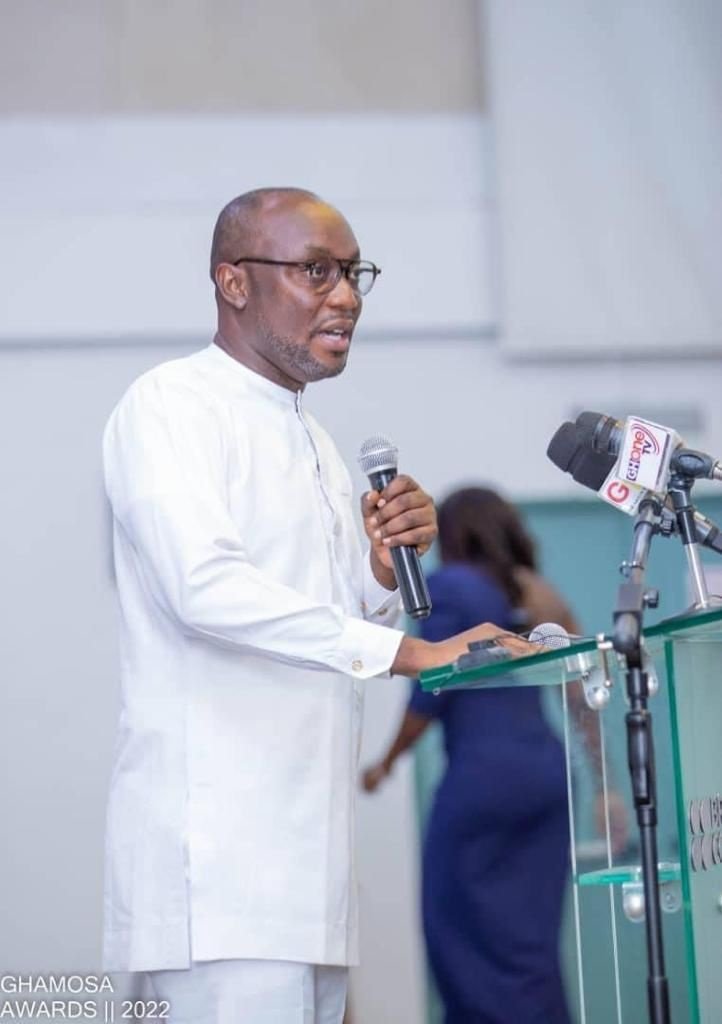Editorial
Abuakwa South residents grateful to Dr. Kingsley Agyemang

Dr. Kingsley Agyemang
Dear Editor,
Dr. Kingsley Agyemang, a philanthropist, has insured more than 26,000 residents in the Abuakwa South Constituency of the Eastern Region free of charge.
The registration of free the National Health Insurance Scheme (NHIS) began in January 2023 in Abuakwa South Constituency. Its first edition ended on March 30, 2023, with more than 12,000 constituents being insured while the second edition which commenced in April is still ongoing.
On records, over 26,000 constituents have been insured so far within six months. The number of insured constituents looks encouraging and speaks volume.
Dr. Agyemang’s focus is not only on education, welfare and agriculture. He included health because he knows health is wealth and our health is very important to him.
Talking about health, he did not only insure constituents, he has organised a series of free health screenings for constituents in various communities to ensure their healthiness.
The residents of the Abuakwa South Constituency appreciate Dr. Agyemang for making constituents’ health a priority and bringing happiness to their doorsteps. “It is been a wonderful journey with you as a leader and we shall cross the river Nile with you,” a resident was heard saying.
As it stands now, over 80 per cent of the constituents are grateful to Dr. Kingsley Agyemang.

I will like to appreciate some key personalities in the Abuakwa South Constituency offering help and making Dr. Agyemang’s task easier. These individuals work tirelessly to make sure his vision in developing the area materialise. I am making it known that, when writing the history book of Abuakwa South, we would not turn blind eye to people like Dr. Michael Ampem Darko, Hon. Dada Joe, Hon. Julius Okyere and Hon. Felix Nyarko Acheampong.
By Obeng Daniel Ofosu,
Nungua, Accra
Editorial
Kudos to Ho Teaching Hospital staff, but …
Dear Editor,
If there is any group of professionals that get bad-mouthed the most, then you are referring to nurses and medical doctors assigned to public hospitals across the country.
For this particular letter, I want to sing the praises of this same group of professionals that work at the Ho Teaching Hospital, famously known as Trafalgar.
Despite the work load and the mass casualties received at the emergency ward of the hospital, the welcoming nature of the nurses and the professional touch by the doctors can’t be ignored. My personal experience has got me travelling from my base in Accra to seek medical services from these professionals.
Special mention has to be made of the likes of Precious of the Pharmacy Department, Dr Brandon Banor (a maxillofacial resident) of the Dental unit, male nurse Justice assigned to the female surgical ward. Words cannot really do justice to their affable, professional caring nature. A simple thank you is all that I can say.
In the same vein, I can’t but call out the bad attitude of the auxiliary staff and contractors of the hospital.
Chief among them is some of the contracted bank staff that handle the payment section of the hospital and the patient registration section (those that check the status of the patient as to whether they are fee paying patients or NHIS sponsored).
The attitude at times leaves a bad taste in the mouth. One such occurrence was a night staff of the registration section who had her legs on the office table whilst talking to patients.
The CEO of the hospital needs to shine his torch light on this support sections before they erode the awesome performance of the direct medical staff of the hospital.
Thank you for the space.
Kwesi Manu
Accra
Editorial
Develop policies to address disability concerns
Dear Editor,
AT the beginning of the year, when I went to the bank to deposit money into my uncle’s account, I observed a very sad situation where a man in a wheelchair struggled to navigate his way around the facility.
This is because the structure is disability unfriendly.
As I stood and watched how the man struggled to move his wheelchair, I felt sad and wondered if this is how the life of a disabled person should be. It becomes worse if there is no one to offer help.
In Ghana, People With Disabilities (PWDs) are often treated differently and are often subjected to all forms of discrimination.
Most of these people find themselves in such a situation as a result of unfortunate happenings such as accidents and injuries.
It is, therefore, not appropriate for anyone to discriminate against them. Discrimination against such persons take many forms, including how buildings are constructed.
Most of the public structures are not disability friendly and impede their movement.
As a country, we should consider the PWDs in designing our structures. I also think that there should be a national policy that seeks to address this issue.
I have a strong conviction that when such a policy is developed by the government, people with disabilities would feel appreciated and also promote social inclusivity.
Ray,
Kasoa







